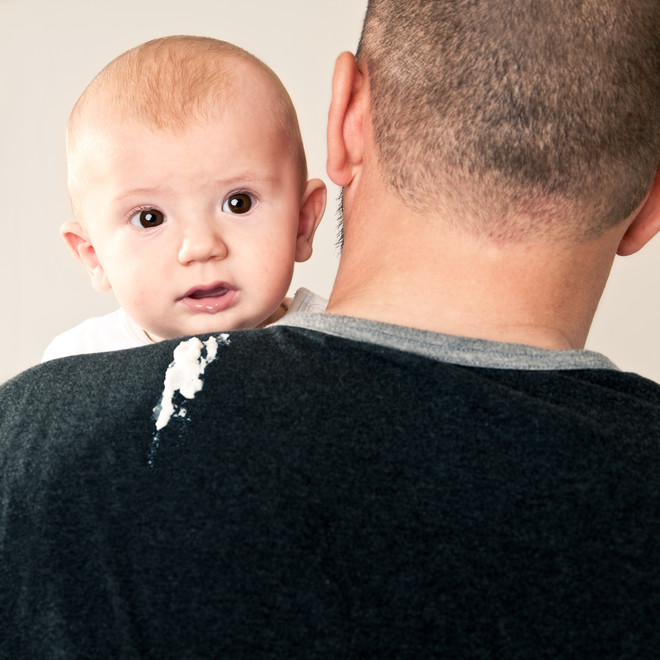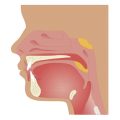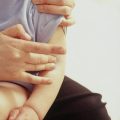Why does the baby regurgitate after breastfeeding?
The appearance of belching is associated with the characteristicsanatomical and functional structure of the digestive organs. There are several muscular rings in the stomach called sphincters. One of them is the pylorus. It prevents food from getting back into the esophagus. A newborn baby does not have formed sphincters, they mature a little later, by 3-4 months. Therefore, after each feeding, some of the food eaten by the baby comes back out. Baby burps after breastfeedingup to 3-4 monthsPhoto: Getty When breastfeeding, burping in babies occurs more often, since the adapted formulas used for artificial feeding contain substances that prevent the return of food from the stomach. There are several main reasons for regurgitation of breast milk:
Baby burps after breastfeedingup to 3-4 monthsPhoto: Getty When breastfeeding, burping in babies occurs more often, since the adapted formulas used for artificial feeding contain substances that prevent the return of food from the stomach. There are several main reasons for regurgitation of breast milk:
In case of incorrect breast latching, anxiety andWhen a baby cries, air gets into the digestive tract. After feeding, the baby often falls asleep immediately, parents put him on his side, and gas bubbles come out with some of the food eaten. To prevent regurgitation, it is necessary to carry the newborn in an upright or inclined position for several minutes after feeding, so that the air that accidentally got into the esophagus comes out. Another reason why a child burps after breastfeeding is overeating. With frequent application to the breast, enzymes cannot digest the entire volume of food, and the overfull stomach removes excess. An improper diet of the mother also causes excessive gas formation in the baby's intestines, which manifests itself as colic and regurgitation, when some of the gases come out through the mouth, and some through the rectum. A breastfed baby can burp after eating for up to 3 months. This is normal, but there are cases when the phenomenon becomes pathological:
If a baby burps after breast milkabundantly, but it happens once a day - this is normal, even if it happens like a fountain. But at this age, it is difficult to distinguish burping from vomiting. It is important to remember that with abundant, prolonged burping, the baby may become dehydrated, because for a baby, milk is not only food, but also liquid. Therefore, it is important to consult a pediatrician and determine whether your child's burping is a natural process or a symptom of some disease. Gradually, the volume and frequency of burping decrease and stop completely by the age of 4 months. So, when breastfed, a child burps more often than when bottle-fed. This is not a pathology if it occurs in a small volume within 30 minutes after eating. With more frequent burping, a doctor's consultation is required. It is also useful to know:









